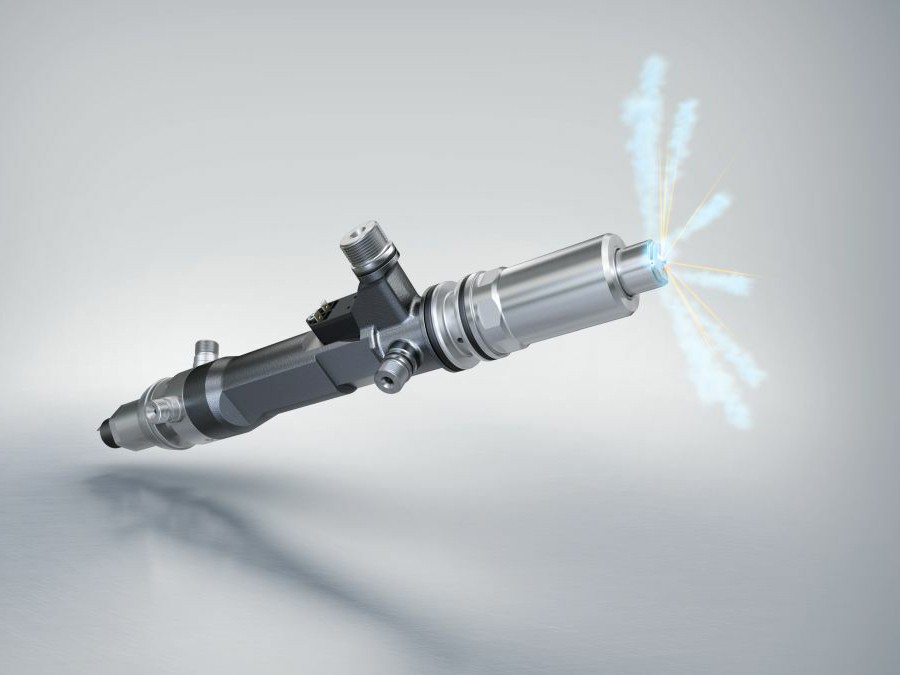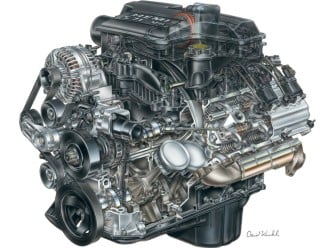Most vehicles from the 1980s and newer are equipped with advanced electronic fuel injection engines (replaced the carburetor). The main part of the system is the fuel injector.
Although your injectors may never have problems (especially if you use good injector cleaners frequently), sometimes they become dirty, clogged, or completely fail and need to be replaced.
Below are the most common symptoms of bad fuel injectors and the average cost of replacing them (when broken) or cleaning them (when clogged).

How a Fuel Injector Works
The basic function of the fuel injector is to provide fuel for the engine. The fuel injector injects (injects) fuel into the cylinder of the engine through the nozzle, thereby starting the combustion process of the internal combustion engine.
Fuel must be delivered at the right time, the right amount, and the right pressure, angle, and spray pattern
The engine control unit (ECU) is the central computer or "brain" of any vehicle and manages many individual components, such as the fuel injector. Through various sensors, the ECU ensures that the injector injects the fuel in the correct amount at the correct time to produce the correct air/fuel mixture.
The vehicle's fuel pump pushes gasoline from the fuel tank through the fuel line into the fuel injector. When the ECU determines that fuel is needed, it sends it to the fuel injector solenoid valve, which then opens to allow pressurized fuel to be injected into the cylinder.
9 Common Bad Fuel Injector Symptoms
If there is a problem with one or more of your injectors, your vehicle’s engine will not operate as expected.
A faulty injector will either prevent the fuel from being injected into the engine together, or it will mess up the intervals that should be injected. Either way, your vehicle will not drive as expected or even drive.
Here are 9 signs of bad injectors that you can identify early. Some symptoms of clogged or dirty fuel injectors can be similar, so it’s always a good idea to first try a fuel injector cleaner that works well with the fuel system before spending money to replace the fuel system.
Or, it may be necessary to ask a mechanic to clean your injectors properly or purchase an injector cleaning kit and do it yourself. Either way, you want to solve the problem as soon as possible, so as not to cause serious damage to the engine.
1. Rough Idle or Engine Stalls
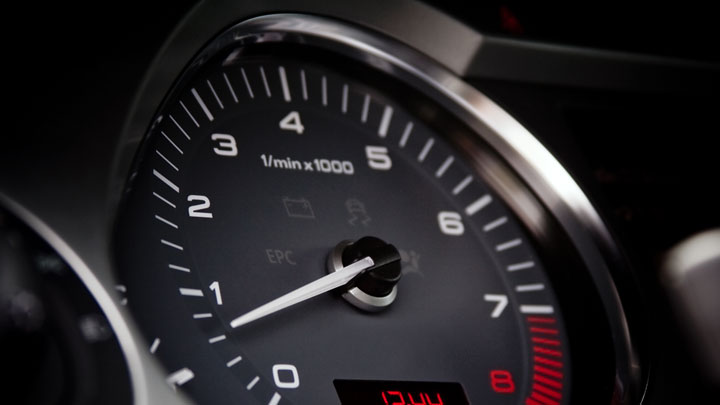
Because your vehicle does not get enough fuel or the fuel supply is uneven, the RPM at idling speed will drop below the optimal level, resulting in unstable idling or even severe idling. If the RPM drops too low, the car will actually stall and you will need to restart.
2. Engine Vibrates
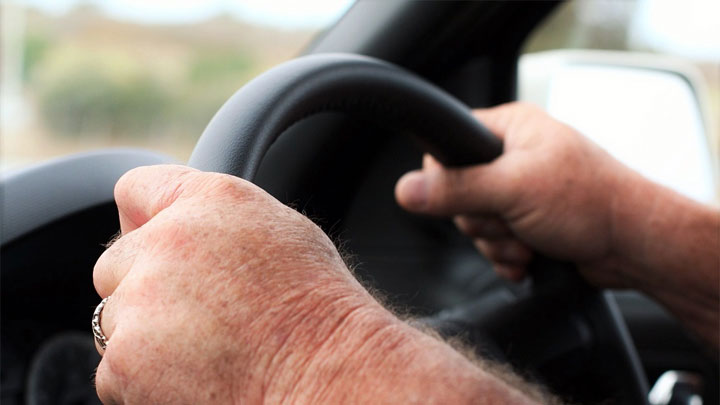
A defective injector will cause the corresponding cylinder to fail to ignite. This means that when driving, the engine will vibrate or hiccup after trying to complete each cycle without fuel.
3. Engine Misfires
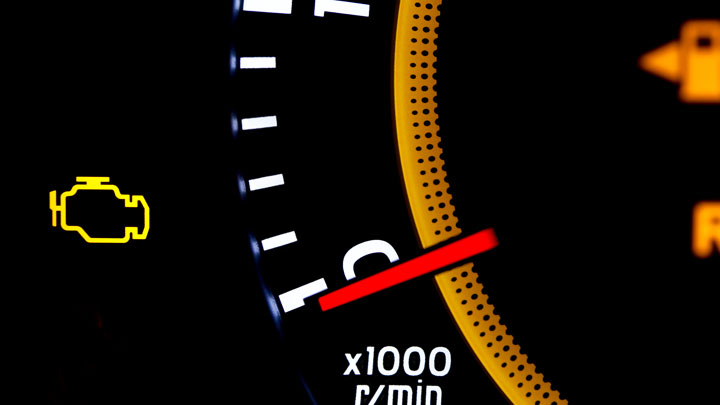
If the engine does not inject enough fuel due to blocked injectors, the engine will misfire while you are driving. Your vehicle will have difficulty accelerating, or it will pause after you step on the gas pedal.
Either way, you need to solve the problem as soon as possible, otherwise, when the proper air/fuel mixture is disrupted, the engine will easily overheat or cause other problems.
4. Check Engine Light Turns On
The most obvious sign of the problem is the "Check Engine" light on the dashboard. Although this may mean many things, a bad injector may be one of them.
Any time the fuel injectors provide less fuel than needed (or more in some cases), the engine efficiency will decrease and the CEL may be triggered. Use the OBD2 scanner to confirm the problem.
5. Fuel Leak
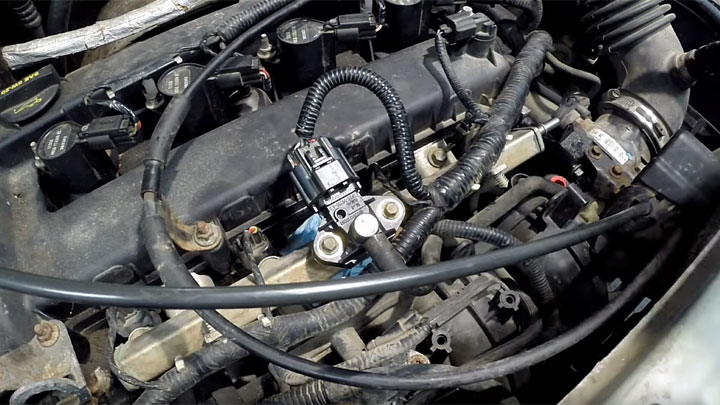
If your injector is actually damaged or ruptured due to damage or aging, then gasoline will start to leak from it. This means that the fuel will not reach the nozzle, but will leak from the body.
If you check the fuel injector, you will find gasoline on the outside or nearby the fuel rail. Usually, the leak comes from the fuel injector seal, which will get worse over time.
6. Fuel Odor
This is accompanied by a fuel leak, but when your gasoline is not burning due to a damaged injector or stuck in the open state, you will smell gasoline. Sometimes the problem may be your fuel line or a faulty sensor telling the ECU to inject unnecessary fuel.
Either way, you need to find the cause of the gasoline odor and fix it immediately before it becomes a big safety hazard.
7. Engine Surge
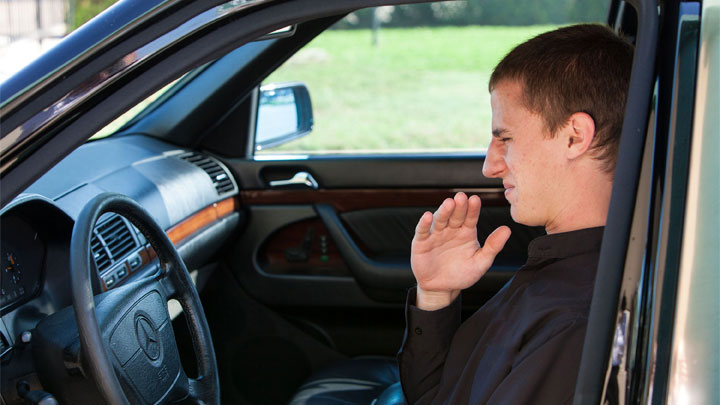
If the injector sprays too much fuel into the engine cylinders, this will create a surge in the engine, causing you to accelerate much slower. When you drive, you will notice that the engine RPM changes significantly under constant load, instead of maintaining a constant RPM.
8. Bad Fuel Economy
If the engine does not get the right amount of fuel for combustion, it will place more demands on the injector to provide it with additional fuel. This can lead to poor fuel economy due to excess fuel that the car's ECU thinks is needed but is actually not necessary.
9. Failed Emissions Test
Damage or leakage of fuel injectors will cause uneven or incomplete fuel combustion, which will lead to increased emissions. This means that your chances of failing the emissions inspection are greatly increased.
In some cases, a leaking injector can cause the air/fuel mixture to become too rich, which will eventually burn the catalytic converter.
Cleaning Cost
The injector will not last forever, but you can take steps to extend its life as much as possible. Many experts recommend cleaning the injector every 30,000 miles or so. In this way, the fuel injector will not be blocked and prevent fuel from being injected into the cylinder.
Fuel Injector Cleaner
Now using a bottle of injector cleaner is good preventive maintenance, and it is quite cheap. Expect to pay approximately $10-15 for a bottle of detergent.
For maintenance, you will use one bottle for regular oil changes, but if the injector has shown signs of clogging, you will use one bottle every time the tank is filled.
Professional Fuel Injector Cleaning
For more dirty or clogged syringes, more expensive professional cleaning is required. Expect to pay between 50 and 100 dollars for this service.
Some companies even allow you to ship dirty syringes to them, and they will clean them for $15 to $20 each and then ship them back. They may do the most thorough work, but if you need a vehicle, you will obviously have some downtime.
DIY Fuel Injector Cleaning Kit
Alternatively, part-time or full-time professional mechanics can purchase a fuel injector cleaning kit, which usually pays for itself after a few uses. A good kit (such as this OTC kit) will include various adapters that will allow you to work on most fuel injected vehicles.
Fuel Injector Replacement Cost
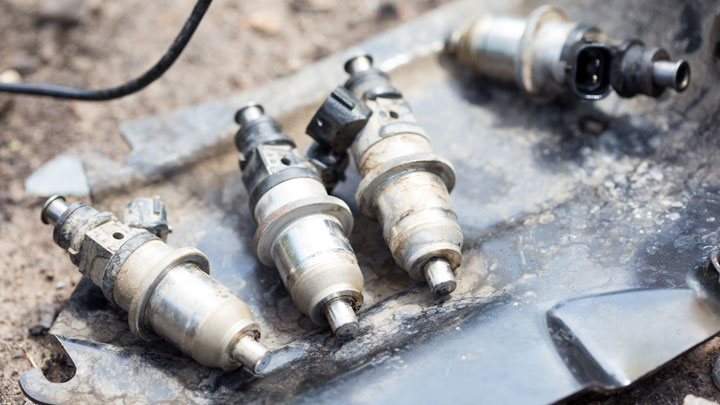
Fortunately, if there is a leak, most injector problems can be resolved by professional cleaning or replacement of O-rings. But when the fuel injector is broken or damaged, replacement is necessary and can be expensive.
Although the injectors are separate, they are designed to work with other injectors as part of the team. Therefore, if you want to know whether you can replace only one syringe or all of them, the answer is almost always all of them.
Depending on your brand and model, you usually need to pay between US$800 and US$1,450 for a complete fuel injector replacement. Parts alone are about US$600 to US$1,200, and labor costs are about US$200 to US$250.
of course, there are exceptions. Using non-OEM parts can save you some money, and some brands/models of vehicle replacement costs can be as high as $2,000. It makes sense to shop around for such jobs.

